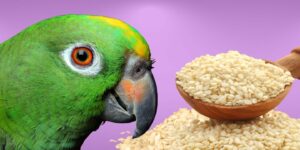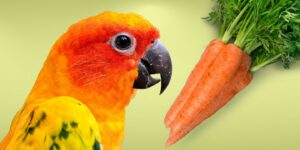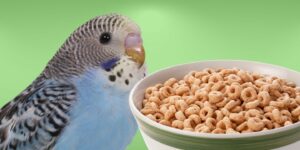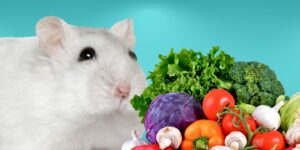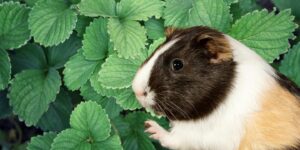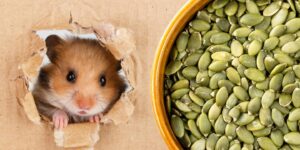Rabbits are herbivores and, as such, they do not eat meat. It is not a natural part of their diet and feeding rabbits meat can be harmful to their health. Understanding a rabbit's natural diet is essential to debunking any myths about them eating meat. In this article, we will discuss the anatomy and digestive system of rabbits, the potential health risks of feeding them meat, and the proper diet for these animals.
The anatomy and digestive system of rabbits
Rabbits' unique gastrointestinal system
A rabbit's gastrointestinal system is specifically designed to process plant-based materials, such as hay, grass, and vegetables. Their unique digestive system features a large cecum, which houses beneficial bacteria that help to break down fibrous plant material.
Importance of fiber in rabbit's diet
Fiber is essential for a rabbit's gastrointestinal health. It aids in digestion, helps to prevent hairballs, and maintains the balance of beneficial bacteria in their gut. A diet high in fiber helps to ensure their digestive system functions properly and reduces the risk of gastrointestinal problems.
Potential health risks of feeding rabbits meat
Gastrointestinal problems
Feeding rabbits meat can cause serious digestive issues due to their inability to process animal-based proteins. It can lead to constipation, diarrhea, or gastrointestinal stasis, which is a potentially life-threatening condition in which the digestive system slows down or stops altogether.
Imbalance of gut bacteria
A rabbit's gut bacteria play a crucial role in their digestion and overall health. Introducing meat into their diet can lead to an imbalance of these bacteria, resulting in digestive problems and a weakened immune system.
Malnutrition
Rabbits need a variety of nutrients that are primarily found in plant-based foods. Feeding them meat can lead to a deficiency in essential vitamins and minerals, negatively impacting their health and growth.
Obesity and other long-term health issues
Feeding meat to a rabbit can lead to obesity and other long-term health problems. A high-protein diet is not suitable for rabbits and can cause kidney damage or liver disease if consumed over an extended period.
Proper diet for rabbits: hay, vegetables, and fruits
The importance of hay in a rabbit's diet
Hay, specifically Timothy hay, should make up the majority of a rabbit's diet. It provides the essential fiber they need to maintain a healthy digestive system and should be available to them at all times.
Choosing the right type of hay
There are several types of hay available, such as Timothy, orchard grass, and meadow hay. Timothy is the most recommended type due to its balanced nutrients and high fiber content.
Safe vegetables and fruits for rabbits
Rabbits can also consume small amounts of fresh vegetables and fruits. Safe options include dark, leafy greens like romaine lettuce, kale, and parsley, as well as fruits such as apples and strawberries. However, these should be limited in quantity to prevent an overly sugary diet.
Foods to avoid
Certain foods should be avoided completely, as they can be toxic or harmful to rabbits. These include onions, garlic, avocado, chocolate, and iceberg lettuce.
How to maintain a healthy diet for your rabbit
Proper portion sizes for rabbits
Rabbits should have unlimited access to hay, while vegetables and fruits should be limited to small daily portions, no more than 1/8 to 1/4 cup per day for a small rabbit.
Introducing new foods to your rabbit's diet
When introducing new foods, do so gradually to avoid upsetting their digestive system. Monitor them closely for any signs of distress or gastrointestinal issues.
Monitoring your rabbit's weight and health
Keep a close eye on your rabbit's weight and overall health to ensure they are receiving a balanced diet. Any sudden changes in their behavior or appearance may signify an issue with their diet or health.
The role of pellets in a rabbit's diet
Pros and cons of commercial rabbit pellets
Commercial rabbit pellets can be a convenient and consistent source of nutrients for your rabbit. However, they should not replace hay as the primary component of their diet. Over-reliance on pellets can result in a lack of essential fiber and an increased risk of obesity.
Choosing the best pellets for your rabbit
When selecting rabbit pellets, look for quality products that are high in fiber and low in protein and sugar. Avoid those with added fillers, artificial coloring, or preservatives.
Frequently asked questions about rabbit's diet
Can rabbits eat eggs or dairy products?
No, rabbits are herbivores and should not consume animal-derived products like eggs or dairy.
What about insects and other small animals?
While rabbits may occasionally ingest insects or other small animals incidentally, these are not a natural component of their diet and should not be intentionally fed to them.
How can I tell if my rabbit is getting enough nutrients?
Monitor your rabbit's weight, fur quality, and overall health to gauge their nutritional intake. Consult a veterinarian if you have concerns about your rabbit's diet.
Conclusion
In conclusion, rabbits should not eat meat due to their natural herbivorous diet. Feeding them meat can lead to adverse health effects such as gastrointestinal problems and malnutrition. A rabbit's diet should predominantly consist of hay, with a small amount of fresh vegetables and fruits. Monitoring and maintaining a healthy, balanced diet for your rabbit will promote their overall well-being and longevity.



